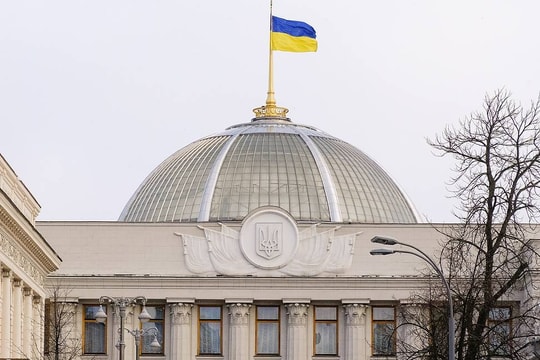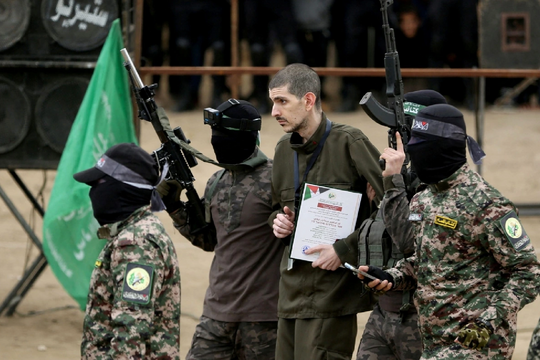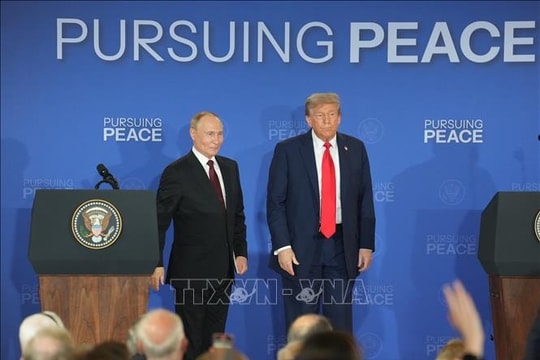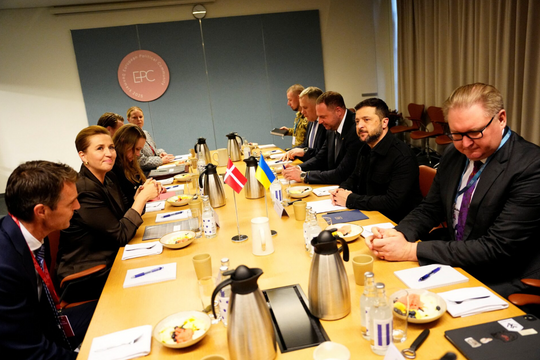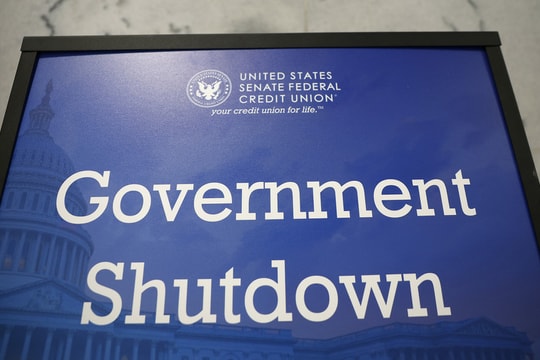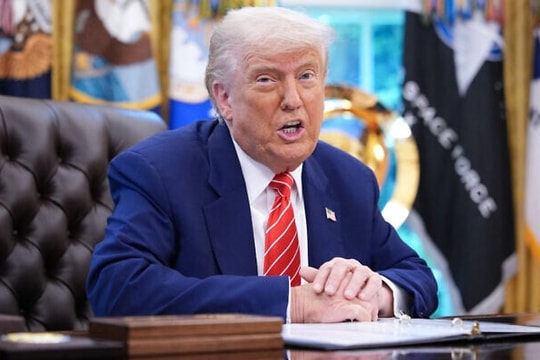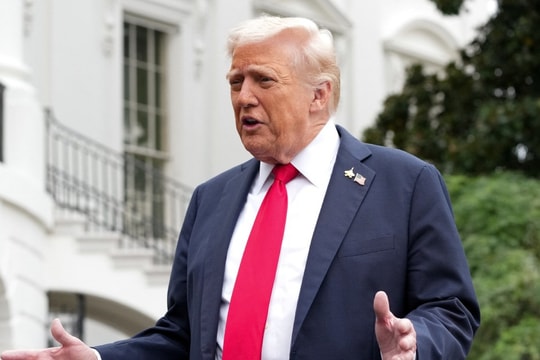The world is confused after Trump's immigration ban
US President Donald Trump's executive order restricting refugees from seven Muslim countries has caused concern around the world. Many experts say this policy has many unusual and confusing points.
The New York Times editorial called Trump's ban "cowardly and dangerous." According to the Times, this "cruel" decision has first of all hurt refugee families, who always believed that they could escape the bloody massacre to find new hope in America.
Their anguish and despair were palpable at US airports just hours after the order was issued. Refugees who were so close to the door of the US after years of strict screening felt it was a “cruel joke of fate”.
Dangerous and unusual
The Times also said the ban was unreasonable and unconstitutional. More importantly, it was extremely dangerous because extremist groups could take advantage of it to spread the message that America was targeting Muslims, not terrorists.
In addition, the ban could cause US allies in the Middle East to lose faith in the US government. Afghan and Iraqi soldiers, who are supporting US military operations, will wonder why they should risk helping a country that denies their fellow countrymen, and possibly themselves, refuge in times of danger.
Protests spread in the US against the immigration ban: On the second day of the protest, tens of thousands of Americans took to the streets chanting slogans "Let them in", "We are all immigrants" and "No hate, no fear".
Commenting on the Washington Post, Palestinian journalist Daoud Kuttab said that this new decree has destroyed the centuries-old value of equality in America, where people are not discriminated against because of their religious differences.
Peter Bergen, a national security analyst for CNN, said this was a big mistake by Trump regarding Syrian refugees. According to Bergen, this ban is completely useless because there is no evidence that Syrian refugees settling in the US have any connection with terrorists.
In addition, the US has accepted only a very small number of Syrian refugees, mostly women and children. They are victims of terrorism trying to escape the Islamic State, not the perpetrators of terrorism.
Furthermore, it is difficult for terrorists to enter the United States as Syrian refugees, because these immigrants are vetted through a rigorous screening process that can last for years.
The British Telegraph also agreed with the above view, calling Trump's ban unnecessary and even doing more harm than good. George W. Bush imposed a similar travel ban in the tense months after the 9/11 terrorist attacks but it was ineffective.
The list of countries affected by the ban also seems to be chosen quite randomly. Iran is included despite its negligible Shia Muslim and terrorist sponsoring proportion. Afghanistan and Pakistan, two undeniable sources of extremism, are excluded.
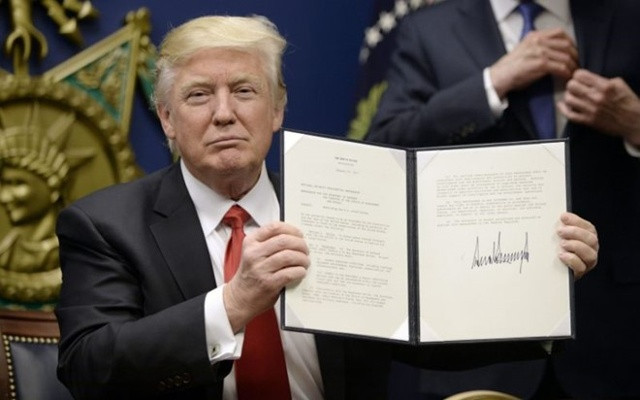 |
| US President Donald Trump holds the executive order he signed at the Department of Defense in Virginia, January 27, 2017. Photo: UPI. |
Suad Abdul Khabeer, an anthropology professor and African American studies researcher at Purdue University in Indiana, called it a dangerous distraction. Professor Khabeer found something “unusual” about the list.
The draft order begins by pointing to the 9/11 terrorist attacks as a “failure of the visa process.” It blames the State Department for preventing “diplomatic officials from properly vetting visa applications for some of the 19 foreigners who came to kill 3,000 Americans.”
Most of these individuals are from Saudi Arabia, a country not on the list.
Furthermore, when it comes to “homegrown terrorism” of all the Muslims accused, charged, convicted and executed, only a few are from the seven countries on Trump’s list, the others are immigrants and US citizens.
This means that the above list needs to be longer or it needs to be not only a matter of national security but also
Khabeer argues that Trump is continuing to exploit the fear that fuels xenophobia, the same fear that fuels people’s enthusiasm for walls and bans, all to distract them from promises he won’t keep.
Growing global concerns
Le Monde commented that Trump's anti-immigration decree has increased global concerns. Under pressure, British Prime Minister Theresa May declared that she "disagrees" with the immigration restriction policy imposed by Mr. Trump.
French President Francois Hollande warned his US counterpart against "isolationism" and called for "respect" for the principle of "refugee reception" based on democracy.
In an interview with L'Express, French Foreign Minister Jean-Marc Ayrault pointed out that "when faced with an unstable and uncertain world, trying to shrink back is a futile reaction."
German Chancellor Angela Merkel's spokesman said imposing an immigration ban based on origin and religion was "unjustified" even in the context of the need to fight terrorism.
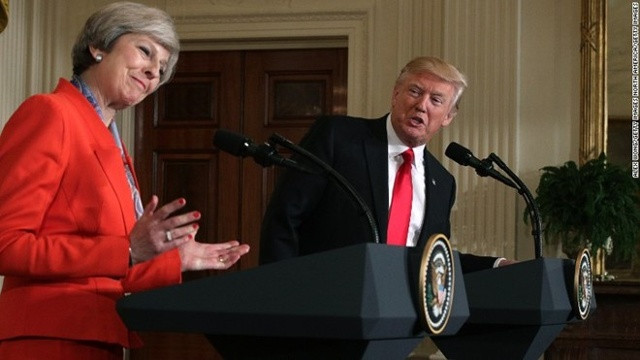 |
| British Prime Minister Theresa May and US President Donald Trump at a press conference at the White House on January 27. Photo: Getty. |
A day after Mr. Trump signed the executive order, Canadian Prime Minister Justin Trudeau wrote on Twitter: “To those fleeing persecution, terror, and war, know that Canada will welcome you regardless of your beliefs.”
The United Nations High Commissioner for Refugees (UNHCR) and the International Organization for Migration (IOM) have called on Donald Trump to maintain acceptance of people fleeing war and persecution.
On the morning of January 28, Iran issued a statement calling Trump's decree "a blatant insult to the Muslim world, especially the great nation of Iran" and "a great gift to extremists and their sponsors."
Although not on the list, Indonesia, the world's largest Muslim country, also expressed regret over the decision. Its citizens in the US were warned to be vigilant and contact the nearest consulate if anything happened to them after the ban was issued.
According to Zing.vn
| RELATED NEWS |
|---|

